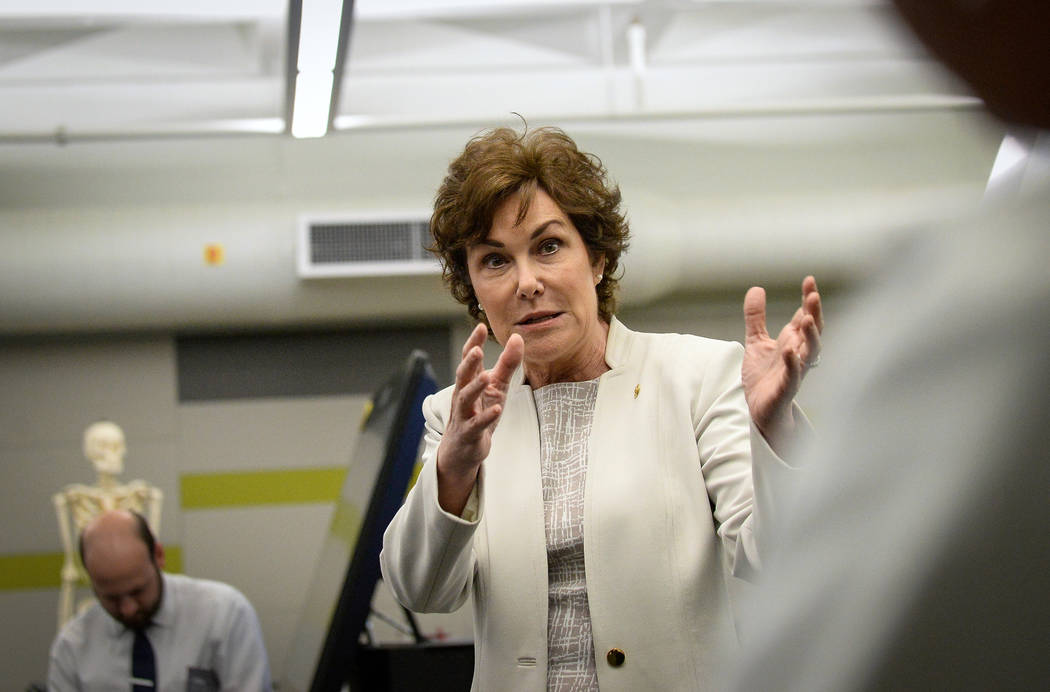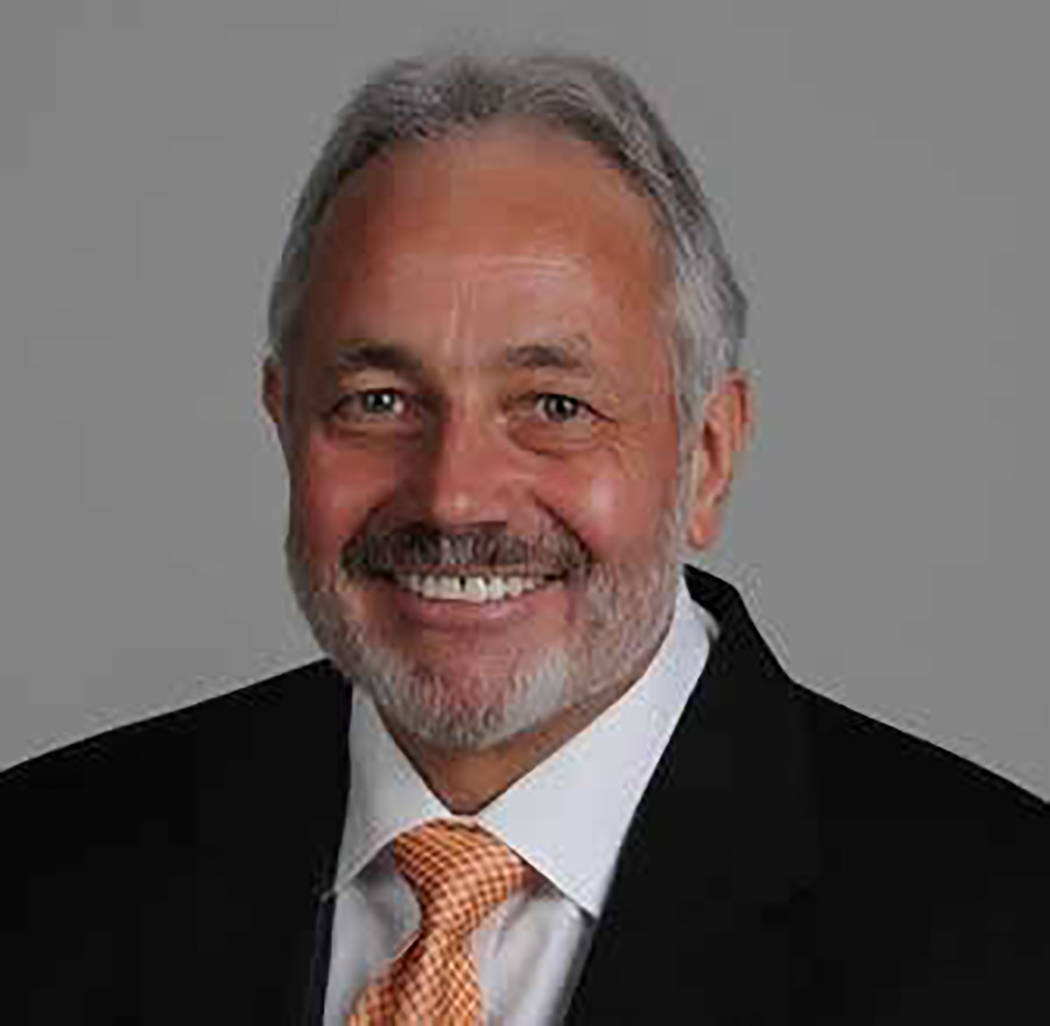Ray Hagar: Nevada senator develops a chilling perspective on domestic terrorism
Incidents of domestic terrorism in the United States are “through the roof,” U.S. Sen. Jacky Rosen, D-Nevada, said on Nevada Newsmakers.
Rosen has recently sat in on hearings as a member of the House Homeland Security Committee and has developed a chilling perspective on domestic terrorism.
“We had a classified briefing just yesterday, talking about this with the FBI,” she told host Sam Shad in an interview this fall. “They (FBI) are talking about the rise in racially-motivated crimes, of which antisemitism is one, and (statistics) are through the roof.
“They are at the highest numbers that have ever been seen,” Rosen said.
Consider: Alleged white supremacists were responsible for all “race-based” domestic terrorism incidents in 2018, according to government documents.
More domestic terror suspects were arrested last year than those allegedly inspired by international terror groups, according to internal FBI figures reviewed by the Washington Post.
In May, the counter-terrorism lead for the FBI testified before Rosen and the House Homeland Security Committee that the FBI is currently pursuing around 850 active domestic counter-terrorism investigations across the country.
And, Las Vegas holds the record for the deadliest mass shooting in our nation’s history, when 59 people were killed and more than 500 wounded in the Oct. 1, 2017 at the Route 91 Harvest music festival.
The FBI cited social media and new communications technology as a reason for the rise in domestic terrorism and hate crimes, Rosen said.
“What I can share with you is that they felt that the rise of social media, the internet (is a factor),” Rosen said. “In the past, maybe 25 or 30 years ago, before it was so easy to be on the internet, you had to get up, go to somewhere, bring something in person and you had to be eye to eye and be in the room. That no longer applies. You can be anonymous, you can sign onto a lot of information, not good information, it’s sad to say, and you can sign onto these sites, join a group on the internet, have total anonymity and just really spark hate, incite violence and spew hateful rhetoric.”
FBI Christopher Wray and other witnesses told the House Homeland Security Committee in October that rapidly advancing technology and the disorganized nature of terrorism, in general, make home-grown terrorism uniquely dangerous, according to Yahoo! News.
“Terrorism today moves at the speed of social media,” Wray told the committee.
However the multiple domestic terrorists are not a united front, Wray told the committee. He called them “self-radicalized.”
“They’re not working together but they’re inspired by each other,” he said, according to news reports.
Social isolation was a factor emphasized by the FBI, Rosen said.
“With the rise of the internet, the dark web and those things, it just becomes easier for people to do that (become isolated),” Rosen said. “They (FBI) talked about the social isolation that some people have. Maybe because of the internet, people are home more and not out as much and how that changes us, being on our phones our iPads, our computers. They felt that was one of the big causes.”
Rosen also spoke about hateful scribblings at the University of Nevada, Reno. Earlier this month, swastikas were found painted in a stairwell in the Church Fine Arts building on campus.
Earlier this fall, UNR officials said they were investigating another swastika painted inside its residence hall at Circus Circus. In September, the school said its students found white supremacist flyers posted on several campus buildings.
The Reno Gazette Journal reported that the university has faced growing tensions this year after a student was photographed at a white nationalist rally that turned deadly in Charlottesville, Va., before the 2017 fall semester started.
“It is a very scary subject,” Rosen said. “We have had threats in Nevada, recent arrests, threats on synagogues and swastikas painted on churches, swastikas painted on dorm rooms at UNR and so we are fighting this.”
Ray Hagar is a journalist for “Nevada Newsmakers.” More information on the public affairs broadcast program, podcast and website are available nevadanewsmakers.com


















